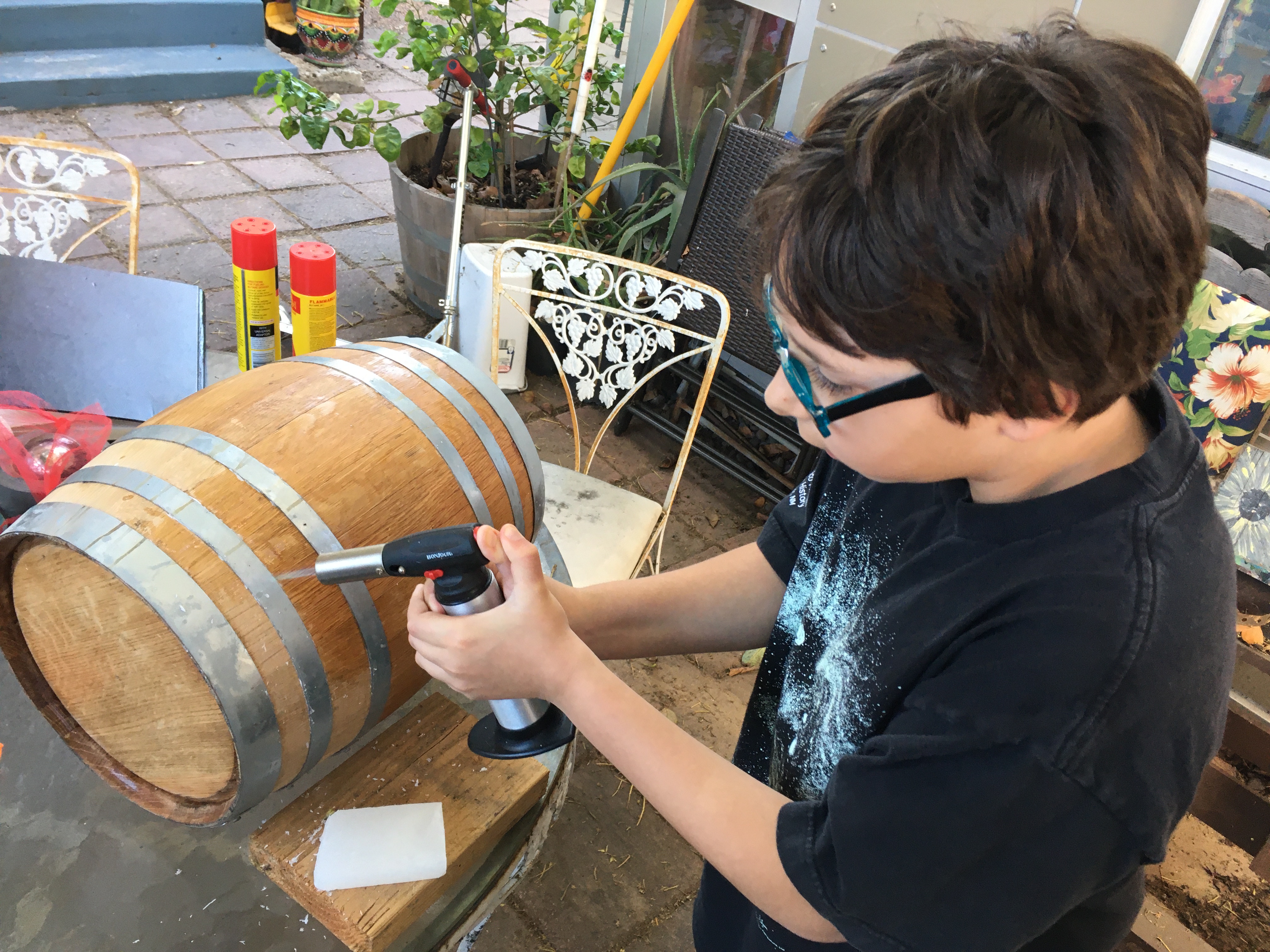I've been home brewing for many years and on many different systems. A brew day used to mean dragging out my system, brewing a batch leisurely while drinking a beer or 4 and cleaning up into the night. An all grain brew day could easily take 8 hours from starting to take out the equipment to putting it all away clean.
But life changes, and my wife and I currently foster care small children so I never have a full day to brew any longer, so I came up with a bunch of changes in my process to allow me to still brew without having to abandon my wife alone with the kids for long periods of time.
Some things that I did and do:
Does anyone else have any good tips? I'm always looking for more tips and ideas.
But life changes, and my wife and I currently foster care small children so I never have a full day to brew any longer, so I came up with a bunch of changes in my process to allow me to still brew without having to abandon my wife alone with the kids for long periods of time.
Some things that I did and do:
- Simplify your system. BIAB and single-vessel all-in-one systems are great for this. At one point I had a 3 vessel direct fired system with a RIMS tube. I spent more time setting-up, cleaning and tearing down the system than brewing. It was cool, but cleaning it all got old quick.
- Have a dedicated location for brewing. I used to store my equipment in the basement and brew on my elevated deck.. so much wasted time carrying stuff up the stairs. Now I have a "brewery" in my basement and it's awesome.
- Electric is awesome, but if you do electric, use 240v. Pretty obvious, but nothing worse than watching a brew kettle take 30 minutes or more to rise from 200 degrees to boil. One of my primary systems is a Grainfather. Adding a Hot Rod heat stick to my process was a huge time saver.
- Automation is king. All sorts of ways to automate these days, but I'm pretty happy with just relying on a system maintain mash temp and doing automated step mashing so I don't have to constantly watch the mash. Pre-heating your strike and sparge water is a must too.
- Clean as you go as much as possible. Obvious, but "if you have time to lean, you have time to clean". If something is dirty, don't stand there admiring the boil, clean-up.
- Plan your brew day. Be as detailed as you can. This helps avoid last minute trips to the homebrew store or running around looking for your ingredients. Ensure you have your yeast and hops close at hand in the brewery. Always have a few packages of dry yeast on hand just in case.
- Collect your grist and pre-crush your grain a day or two before. I keep a lot of grain on hand in vacuum sealed bags and in various bins. Collecting, weighing and crushing the grain takes a surprising amount of time. Do it during some free time before your brew day.
- Collect your water in advance. Alluded to above, but collecting the water the night before, adding your salts/acid and getting it set to be preheated in the morning shaves a lot of time of the brew day. I like to work up my adjustments so that my sparge and mash water has the same addition schedule, collect it in one vessel and seperate the preheated sparge water just before mash in.
- Use no Sparge. If I don't use my Grainfather, I use my 10 gallon BIAB system and do no sparge. This saves the sparge step, and I can usually be at the start of the boil while the last of the wort is getting squeezed from the bag. Also, this is an extremely quick system to brew on regardless.
- Start early. Get up before the rest of the house and get the brew day going to avoid distractions. My most recent brew day I was mashing in at 5:30am and had pitched yeast and mostly cleaned up by 9:45.
Does anyone else have any good tips? I'm always looking for more tips and ideas.














































![Craft A Brew - Safale S-04 Dry Yeast - Fermentis - English Ale Dry Yeast - For English and American Ales and Hard Apple Ciders - Ingredients for Home Brewing - Beer Making Supplies - [1 Pack]](https://m.media-amazon.com/images/I/41fVGNh6JfL._SL500_.jpg)











